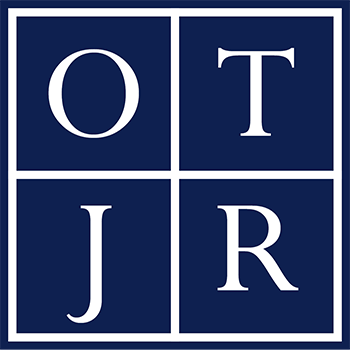Justice in Zimbabwe
On 15 September 2008, ZANU-PF, the previous ruling party of Zimbabwe under the leadership of Robert Mugabe, and the two opposition Movement for Democratic Change formations, led by Morgan Tsvangirai and Arthur Mutambara, signed a political agreement. The aim was to reflect the balance of power in the country after the unresolved March 2008 elections.
The future of this agreement continues to hang in the balance as widespread human rights abuses continue and basic services grind to a halt. Nonetheless, there remains a need for discussions around potential political transition in the country. One of the notable areas of silence in the agreement relates to accountability mechanisms for human rights abuses, although debates around justice are ensuing both inside and outside of Zimbabwe.
The OTJR Working Paper Series reflects these current debates around political transition, human rights abuses and transitional justice. In the next few months it will highlight the views of Zimbabwean citizens, activists, policy makers, NGO workers and academics writing on Zimbabwe and around these themes.
Series Papers
1. Political Crisis, Mediation and the Prospects for Transitional Justice in Zimbabwe
Thu, 18 Dec 2008 by Shari Eppel and Brian Raftopolous
While political deadlock in Zimbabwe means state-sanctioned transitional justice is highly unlikely, there is still space for civil society to pursue redress for human rights violations.
2. Zimbabwe: Transitional Justice without Transition?
Thu, 18 Dec 2008 by Pondai Bamu
Given the inherently political nature of transitional justice, the unlikelihood of meaningful political transition in Zimbabwe dampens hopes for transitional justice.
3. Transitional Justice Will have to Wait
Fri, 16 Jan 2009 by Ismael Muvingi
Discussions of transitional justice in Zimbabwe are premature, substantial political change is still required and the immediate focus should be on responding to the humanitarian crisis.
4. Truth and Reconciliation Processes – Lessons for Zimbabwe?
Fri, 18 Jun 2010 by Max du Plessis
This position paper considers African and other truth commissions and applies the lessons and experiences of other countries to offer a model for any future attempts to create a Zimbabwean truth commission.
5. The Land Question and Transitional Justice in Zimbabwe: Law, Force and History’s Multiple Victims
Wed, 30 Jun 2010 by Dr Alex T. Magaisa
This paper considers transitional justice in the context of land expropriation in both colonial and post-colonial periods requiring any transitional process to address grievances of multiple and diverse victim groups.
6. The Global Political Agreement and Democratic Transition in Zimbabwe
Mon, 27 Jun 2011 by Danielle Connolly
This paper investigates the success of the Global Political Agreement (GPA) as a solution to the democratic impasse in Zimbabwe within the context of a growing trend across Africa towards ‘national unity’ governments.
7. Sexual Violence as Political Strategy in Zimbabwe: Transitional Justice Blind Spot
Mon, 20 Feb 2012 by Obert Hodzi
As Zimbabwe draws closer to yet another election, this paper examines the use of sexual violence as a political strategy at previous elections and its implications for transitional justice initiatives.
